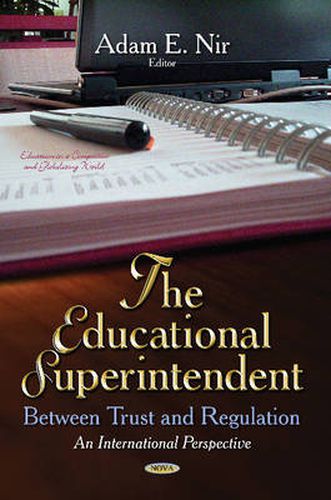Readings Newsletter
Become a Readings Member to make your shopping experience even easier.
Sign in or sign up for free!
You’re not far away from qualifying for FREE standard shipping within Australia
You’ve qualified for FREE standard shipping within Australia
The cart is loading…






Public education is one of the main forces that make a healthy and democratic society. It strives to educate and to provide the younger generation knowledge and skills that allow children to become contributing citizens in their society. Public education is considered highly significant in consolidating the society and establishing its cultural and economic strength. For those reasons, governments choose to invest a significant portion of the state’s national resources in public schooling. Taking into account the costs and political significance attributed to public education, it is not surprising that governments establish some formal mechanism responsible for the monitoring of schools, intended to ensure that schools operate professionally and in accordance with national goals and policies. However, when considering voices arguing for schools’ autonomy and, at the same time, policy makers’ inclination to control schools, a dilemma arises: how can control and trust be pursued simultaneously? This dilemma is obviously applicable in all public education systems and it is therefore not surprising that they all have some formal monitoring mechanism with individuals holding positions often termed superintendent . Nevertheless, substantial dissimilarities among different educational contexts may be found in role expectations and degrees of regulation superintendents are expected to enforce. For completed book description, please visit our link below.
$9.00 standard shipping within Australia
FREE standard shipping within Australia for orders over $100.00
Express & International shipping calculated at checkout
Public education is one of the main forces that make a healthy and democratic society. It strives to educate and to provide the younger generation knowledge and skills that allow children to become contributing citizens in their society. Public education is considered highly significant in consolidating the society and establishing its cultural and economic strength. For those reasons, governments choose to invest a significant portion of the state’s national resources in public schooling. Taking into account the costs and political significance attributed to public education, it is not surprising that governments establish some formal mechanism responsible for the monitoring of schools, intended to ensure that schools operate professionally and in accordance with national goals and policies. However, when considering voices arguing for schools’ autonomy and, at the same time, policy makers’ inclination to control schools, a dilemma arises: how can control and trust be pursued simultaneously? This dilemma is obviously applicable in all public education systems and it is therefore not surprising that they all have some formal monitoring mechanism with individuals holding positions often termed superintendent . Nevertheless, substantial dissimilarities among different educational contexts may be found in role expectations and degrees of regulation superintendents are expected to enforce. For completed book description, please visit our link below.